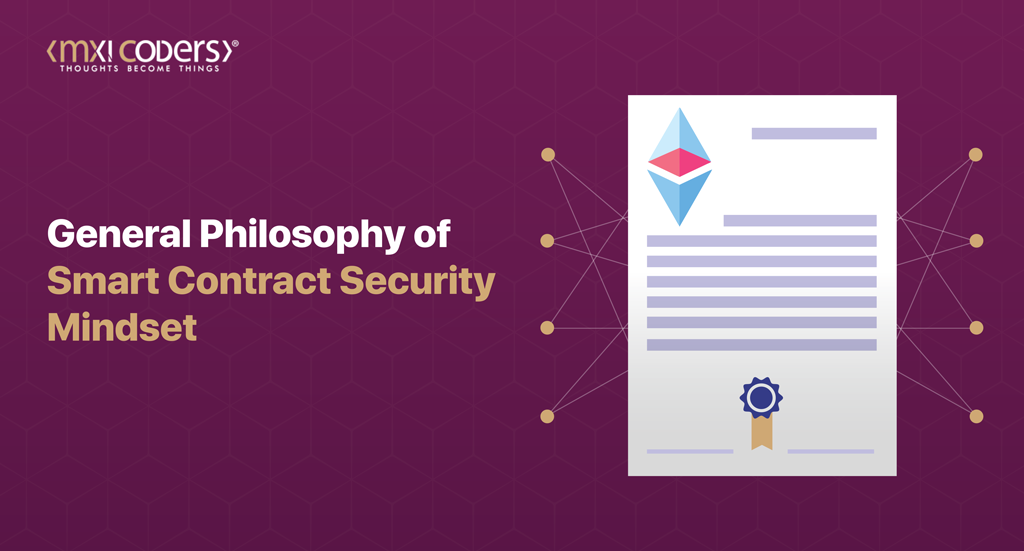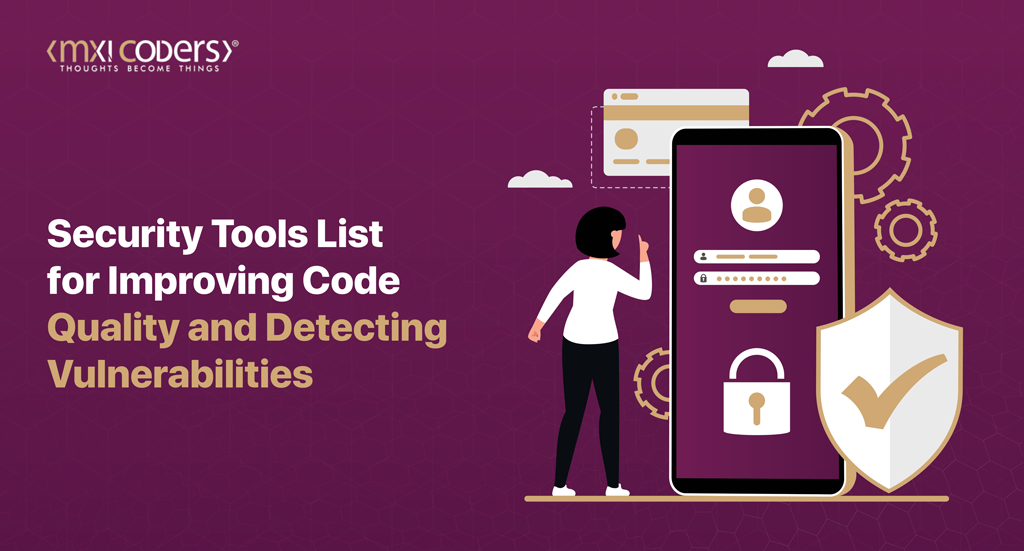Smart Contracts in Blockchain: Development and Unit Testing Explained

Smart contracts Development in blockchains like Ethereum, Binance Smart Chain, Polygon, or Tron is a process that requires a lot of expertise. It allows Smart Contracts developers to develop transactions and agreements to be made without the need for a third party, which can lead to faster and more efficient transactions.
In order to create smart contracts, developers must first learn how to code in Solidity language. Once they have learned the basics of coding in Solidity, they need to learn how to test their contracts for bugs and errors.
Smart contracts development isn’t going to be that much smart if the unit testing is not done right. As the smart contract is something related to transactions there is no scope of having loose ends in it. With continual and diligent unit testing, smart contracts can be free from bugs, security loopholes, and other vulnerabilities.
Through this post, we’re trying to bring the importance of unit testing to the surface and the processes that can make this happen.
General Philosophy of Smart Contract Security Mindset
Cryptocurrency and blockchain technologies are complex, inventive, and have huge scope for experiment and evolvement. Even if new security developments are happening every day, one must not overlook the fact that there is always some scope for new bugs and hassles to show up.
Smart contract programming is a step towards improved security of blockchain and cryptocurrencies like Ethereum. Those who are involved in the task must own an engineering bend of mind. Additionally, one should get familiar with higher failure rates, difficulties in changing the course of action, and the fact that it’s way more than customary mobile and web app development.

Smart Contracts Development Recommendations
Effective smart contract development tends to follow a certain path and strategy to achieve impeccable results. Below-mentioned is the six categories of development recommendation for Ethereum smart contracts.
- The general category explains the basic guidelines and development principles, placed at the core of smart contract development.
- The precautions category talks about the principles required to keep the vulnerabilities at bay and ways to keep the damage under control.
- Solidity-specific categories educate developers about the expert tips useful for smart contracts development in solidity.
- Token-specific category brings the key recommendation to use while handling token implementations.
- The documentation category features the guidelines to be followed during the smart contract and their surrounding ecosystem processes’ documentation.
- Deprecated is the last development category that talks about the past vulnerabilities that are no longer relevant.
List of Security Tools for Improving Code Quality and Detecting Vulnerabilities

The foundation of unit testing for the smart contract is code quality and early vulnerability detection. Once these two steps are handled correctly, the further unit testing journey isn’t going to be that taxing. Gladly, there are a couple of automated and high-end tools ready to assist greatly in the job. Let’s have a look at them.
Waffle
It’s an ether.js.-based framework for advanced smart contract development and testing. More than 25,000 projects have already been tested with this inventive tool. Qualities like an easy learning curve, simple syntax, and quick contract compilations have made it everyone’s first choice for hassle-free smart contract testing.
Solidity-Coverage
A much-talked-about tool on GitHub, Solidity coverage is used to test code coverage for smart contracts. MIT holds the license of this tool, which means it’s trustworthy and highly feature-rich.
Read More: Fintech University: The Revolution in Banking Services
hevm: Using this tool makes EVM implementation is easier than ever. EVM testing is crucial for smart contract testing and debugging.
Whiteblock Genesis
Dedicated to providing end-to-end testing for blockchain, Whiteblock Genesis assists greatly in the sandbox in an easy manner.
OpenZeppelin Test Environment
Get this tool for blazing-fast smart contract testing. As it features a one-line setup, getting started with it isn’t a tough task. There are no global variables, no hacks, and no gas limit with this tool
OpenZeppelin Test Helpers
This tool is basically an assertion library used commonly in smart contract testing done for Ethereum. It bears the responsibility of ensuring the appropriate behavior of the contracts.
Bug Bounties List
Below mentioned are the key bug bounty programs that aid greatly in the smart contract development, their security, and extend the scope.
- AirSwap: AirSwap is a decentralized exchange contract helping greatly in the atomic swaps of ERC20 tokens. The exchange happens only on two Ethereum. It considers the ‘on-chain’ part of the protocol along with the ‘off-chain’ work happened between peers.
- Ethereum Foundation: Dedicated to Ethereum bug bounty, this platform offers huge bug bounty scope for clients, Solidity, Vyper, and other resources.
- Gitcoin Bounties is a great way to have a hold over bounty-based collaboration tools and learned about their usages.
- Parity will provide immediate access to clients and contract codes.
Smart Contract Unit Testing – Key Considerations

Now that a lot is learned about smart contract development, bounty programs, and many more related stuff, it’s time to move forward to unit testing.
Begin with Token
To begin with unit testing for smart contracts, we need tokens. You can either write them or automatically create them via OpenZeppelin. With the help of the platform, you can create an ERC20 token instantly.
As most developers think that OZ implementation of ERC20 will lead to perfect code generation, it doesn’t mean code testing isn’t required.
Start Setting Up the Testing Suite
Once the token is ready, begin with the testing suite set-up. You can import the regenerator from the regenerator-runtime package. After that, copy the code mentioned in README, deploy the accurate creation in the create parameter, set up a mint parameter as per the token’s nature, and finally set up the supply and initial balance for the token.
Begin Test with no Testing
After a successful testing suite set-up, the next step is to call the truffle test command. During this step, it’s natural to see multiple test cases linked with early supply, balances, minting, transfers, and balances. But, that’s a good thing as it refers to full token coverage.
Watch out for Function Overloading and Low-level Calls
While you continue unit tests for smart contracts, you’re likely to face the shortcoming linked with the tools. So, keep ready to deal with them in advance.
Also Read: Crypto Payment Gateway Solutions: Detailed Analysis
Why your Business Needs Smart Contracts?
Smart contracts are a way of recording and storing information on the blockchain, an immutable ledger. One of the most important features of smart contracts is that they are self-executing, meaning they will execute automatically once certain conditions are met.
The use cases for smart contracts vary from business to business, but some examples include:
- Sharing data between organizations or individuals
- Automating agreements between parties
- Executing transactions without middlemen
Three reasons to use smart contracts in your business:
#Reason 1 – Automated transactions with clients are a good idea, which can be achieved through smart contracts. These could include monetary relations, like payments and salaries, or more with information about shipping and delivery for you to arrange your company operations accordingly.
#Reason 2 – Another benefit of self-executable contracts is the security. They can’t be altered, so the terms and conditions stay exactly as they are even if someone hack your system.
#Reason 3 – Smart contracts can save a lot of time and money, since there‘s no involvement of third party services. They’re also really fast because everything is automatically handled by the computer code.
Why Should you Invest in Smart Contracts Technology?
If you are a company that deals with a lot of transactions, then it might be worth investing in smart contract technology. Smart contracts are self-executing contracts that execute the terms of an agreement between two parties. They are programmed to automatically execute when specific conditions are met. This means that there is no need for a third party to verify the transaction and ensure that it was completed.
This system can be used for many different purposes and one of the most popular ones is for financial services firms, where they can use them to automate various processes such as escrow, trade clearing and settlements, among others.
Despite all the advantages smart contracts offer, some business owners are still hesitant to use them.
However, not learning about smart contracts now could hurt your business in the future because businesses that implement this technology will have a big advantage over their competitors.
The advantages, strengths and potential of smart contracts should all be taken into account when deciding what to do next. In the world we live in, smart contract technology is here to stay.
Smart contracts are a fast-emerging technology that can be used to help any business. To stay on top of it, learn all you can and beat your competition, soon, to get ahead of the game.
How Much does a Smart Contracts Development Cost?
The cost of smart contracts development varies from one company to another. The reason for the variation in pricing has to do with various factors such as the size and complexity of the project, the type of blockchain used and whether or not you are using public or private blockchain.
For instance, if you want to use Ethereum, then it is necessary to implement certain features and functionalities that are not available on the private blockchain. Accordingly, cost will vary from one blockchain to another depending on features and functionalities you want.
Usually, a smart contracts developer costs from $50 to $1000 or even more depending on your requirements.
Take a Step towards Secured Smart Contract Development
Smart contracts are key components for blockchain development. Having loopholes in them can lead to endless hassles. With carefully planned unit testing and using inventive tools, developers can develop flawless unit tests, identify the bugs in the early stage, and fix them. If all that sounds too overwhelming for you, hire professionals for the job. But, don’t skip unit testing for smart contracts.
